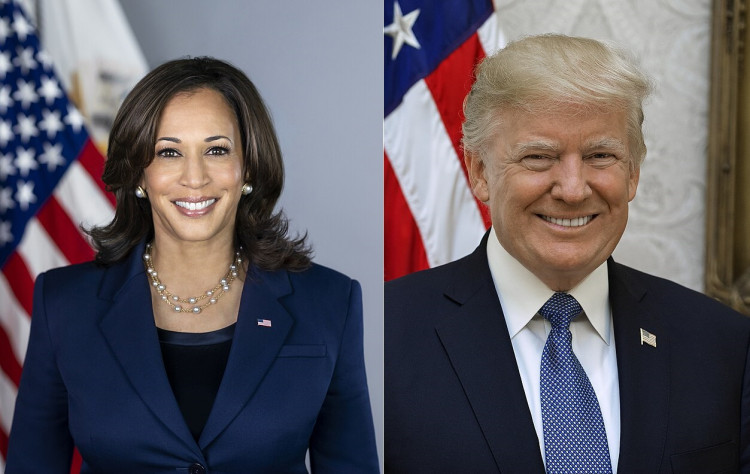With the 2024 presidential election fast approaching, the race between former President Donald Trump and Vice President Kamala Harris has become increasingly tight, particularly in key battleground states. A recent Wall Street Journal poll shows both candidates locked in a dead heat, with the potential for either to gain an advantage as voters weigh the critical issues of war, the economy, and immigration.
In the seven pivotal states that could ultimately determine the outcome of the election-Arizona, Georgia, Michigan, Nevada, Pennsylvania, North Carolina, and Wisconsin-Trump and Harris are virtually tied. Harris holds slim leads in Arizona, Georgia, and Michigan, while Trump has a narrow edge in Nevada and Pennsylvania. The two are neck-and-neck in North Carolina and Wisconsin, leaving the election's trajectory highly uncertain. This echoes findings from other national polls, including a recent Reuters/Ipsos survey, which also shows the candidates in a close race.
Despite the tight overall contest, Trump holds a distinct lead on specific issues that are weighing heavily on voters' minds-namely, the ongoing wars in Ukraine and the Middle East. The WSJ poll indicates that in the seven swing states, Trump is seen as better equipped to handle both crises. On the question of who is better suited to manage the Russia-Ukraine war, 50% of voters chose Trump, while only 39% favored Harris. The gap is even wider regarding the Israel-Hamas conflict, where Trump leads Harris by 15 percentage points (48% to 33%).
Trump's edge in these areas is unsurprising, given his consistent rhetoric on foreign policy. He has positioned himself as a strongman who can handle complex international situations, a stance that resonates with voters who prioritize stability amid global unrest. Trump's focus on securing the U.S. borders, his emphasis on military strength, and his promises to end foreign wars have contributed to his perceived advantage over Harris in these critical areas.
However, the poll also reveals areas where Harris has an upper hand. Voters see the Vice President as more capable of addressing domestic issues like healthcare, housing, and understanding the needs of average Americans. Harris holds a slight advantage among voters on these topics, suggesting that while Trump may dominate on foreign policy, Harris's focus on social welfare resonates with key demographic groups, particularly women and minorities.
The polling data underscores just how volatile this election could be. Both candidates are within the margin of error in most of the battleground states, meaning that even a small shift in voter sentiment could tip the scales. In a race where every electoral vote counts, the seven battleground states will play an outsized role in determining the winner. Harris would narrowly win the Electoral College if she can hold onto the states where she currently leads, but Trump's slight advantages in other key regions suggest that nothing is guaranteed.
Adding to the complexity of the race is the broader political landscape, particularly in Congress. While Harris battles Trump for the presidency, Democrats are facing a tough fight to maintain control of the Senate. Polling shows Republican candidates Rick Scott and Ted Cruz in Florida and Texas, respectively, holding their ground. Moreover, the Senate race in Montana is slipping away from Democrats as Tim Sheehy pulls ahead, threatening the seat held by incumbent Jon Tester. If Tester and other vulnerable Democrats lose, GOP control of the Senate could become a reality.
The challenges facing Harris and the Democrats extend beyond polling data. While the party has mobilized an impressive fundraising operation, they have yet to translate these financial and grassroots advantages into a decisive lead in the polls. With debates now over and few major campaign events left on the calendar, Harris has limited opportunities to sway undecided voters before Election Day. Her campaign has been actively deploying key surrogates, such as Minnesota Governor Tim Walz, in crucial battleground states like Wisconsin to shore up support, but the impact of these efforts remains to be seen.
On the other hand, Trump has seized the momentum in recent weeks. He continues to hold large-scale rallies across the country, including a high-profile event planned for Madison Square Garden in New York. His campaign has framed the rally as an attempt to make a play for the state, although most analysts view it as a strategic move to boost media coverage and energize his base.
The 2024 election is shaping up to be one of the most closely contested in modern history. With the economy, foreign policy, and domestic issues all at the forefront of voters' minds, the coming weeks will be critical for both Trump and Harris as they vie for control of the White House.






